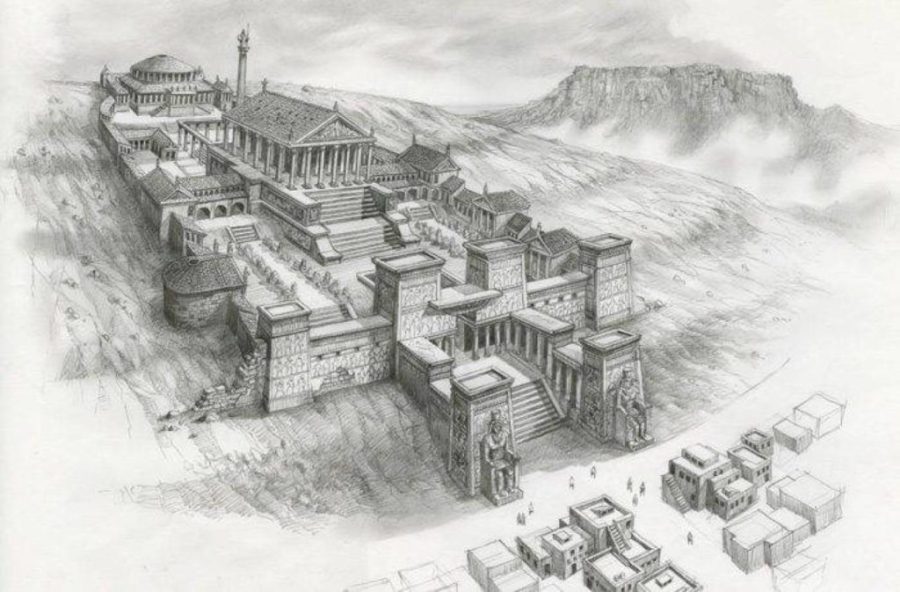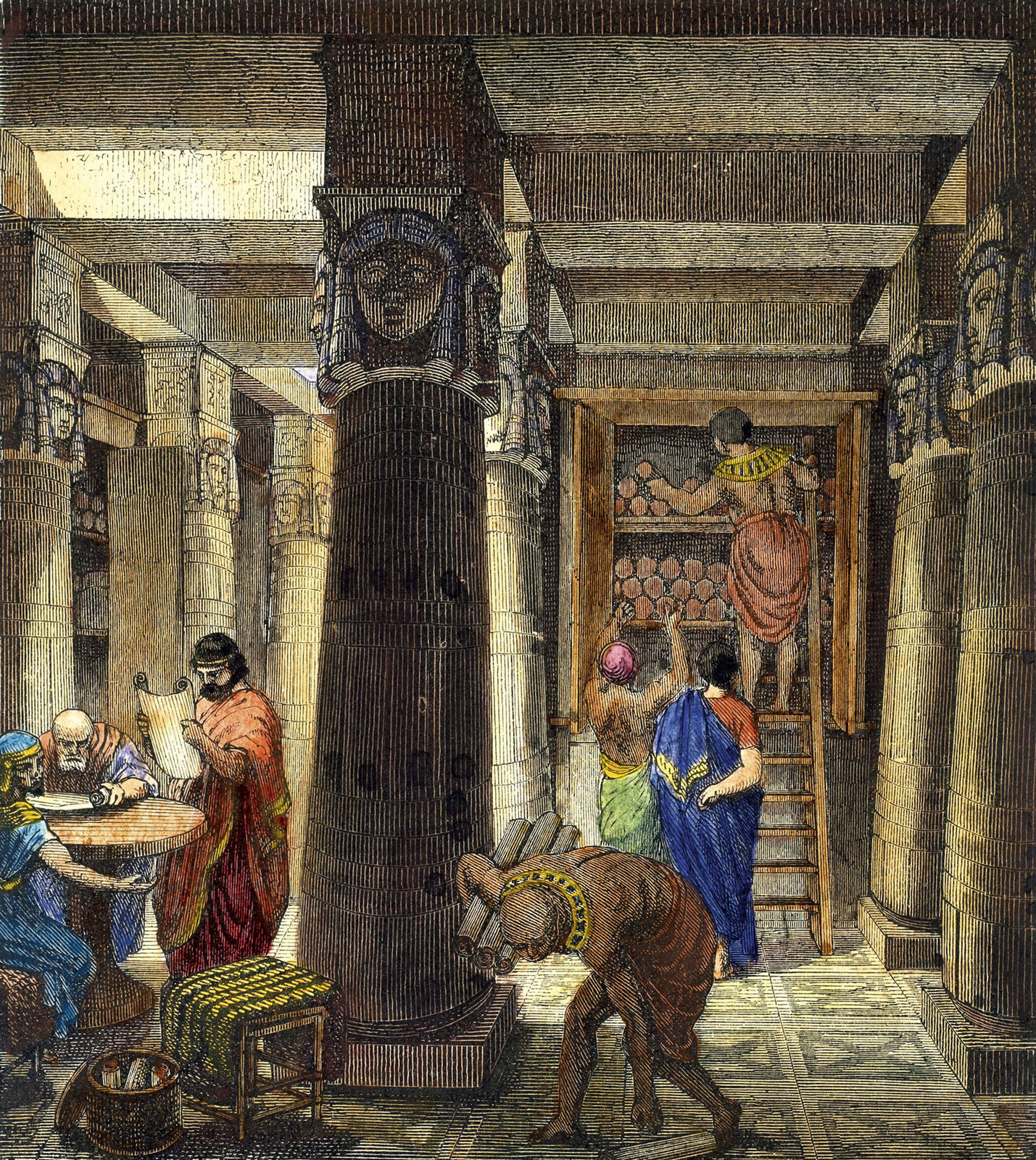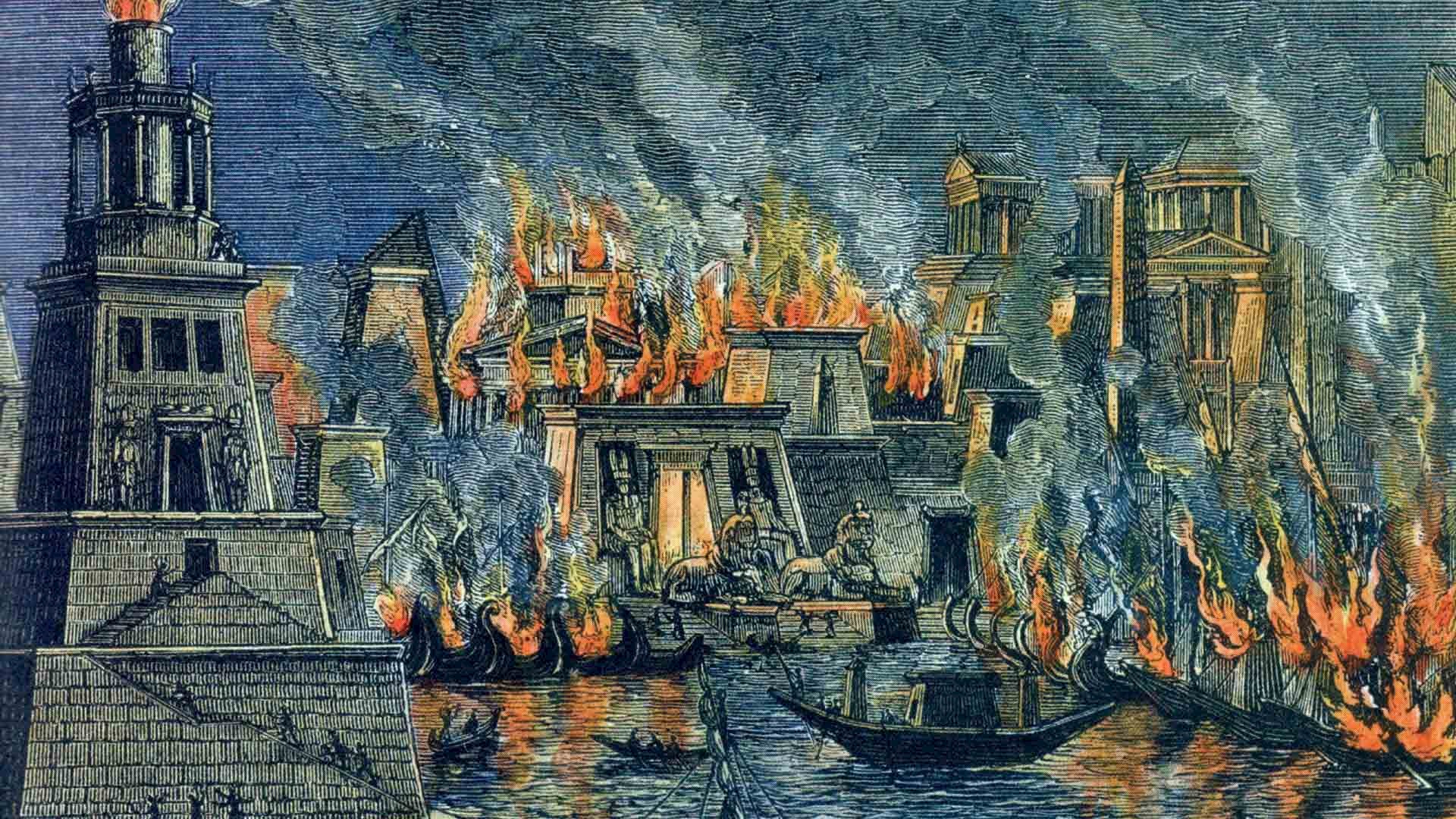
Anatomy of a myth: did the Arabs burn the Library of Alexandria?
Despite the fact that there is much evidence to the contrary, in popular literature you can still find claims that the Library of Alexandria was destroyed by the Arabs in 642 by order of Caliph Umar after the conquest of the city. This story is an intriguing example of how historical myths emerge, writes Bernard Lewis.
The British orientalist Edward Pocock first introduced the story of Umar’s destruction of the Library of Alexandria to the Western world. … It reported that although Amr ibn al-As was against, but the Caliph Umar ordered to destroy the library, saying: “If these books say what is in the Koran, then they are useless. If they say something else, then they are harmful. Therefore, in both cases, they must be burned. ” After that, allegedly, the books were distributed among 4 thousand baths in the city, which were heated by them for six months.
Back in 1713, the French orientalist Evseny Renaudot expressed doubts about the credibility of this story. Subsequently, such scientists as Edward Gibbon , Alfred J. Butler, Victor Chauvin, Eugenio Griffini, Paul Casanova and many others joined his opinion . As an argument, they cited the inconsistency of this version with historical facts. For example, paper appeared in Egypt after the Arab conquests, and many, if not most, books from that period were written on parchment that does not burn. On the other hand, in order to heat the baths with them for 6 months, the library had to contain at least 14 million books.
There is another interesting detail. The 14th century historian Ibn Khaldun cites a story that matches this story almost word for word that the Caliph Umar ordered the destruction of a library found in Iran and possibly consisting of Zoroastrian books. This points to the folklore and mythical origins of the legend.

Source: britannica.com
The strongest argument is that the source of the story is not credible and was created many centuries after the Arab conquest of Egypt. Gregory Bar-Ebrey lived between 1226-1289. Although this story is given by two more authors before him, they lived only 10-20 years earlier. The earliest information of this kind is given in the travel book of the Baghdad scholar Abd al-Latif, who visited Egypt in 1203, and also in the “Tarikh al-Huqama” Ibn al-Kifti (1173-1248). At the same time, we observe that such a dramatic event as the destruction of the Library of Alexandria was not recorded and mentioned not only in the rich medieval Islamic historical literature, but also in Coptic writings, church records, and even in Byzantine and Jewish literature of the corresponding period.
Typically, such myths usually arise in two ways and serve one of two purposes. One of the paths is spontaneous, like folklore, epic, and the other is deliberate, supported by fake evidence. The myths created by the second way serve to justify or discriminate against any person, deed or action. In modern terms, this can be called “propaganda.”
For this reason, one may wonder what the myth of the destruction of the Library of Alexandria serves . The explanation that his goal was to denigrate Islam and the Caliph Umar is illogical, since the original sources belong to Muslims, with the exception of the Syrian Christian Bar-Ebrey, who rewrote his account from a book by an Islamic author.

Source: ancientworldmagazine.com
So, if this myth was spread by Muslims and not by their enemies, what could be its purpose? One of the most convincing versions was expressed by Paul Casanova. He drew attention to the era of the appearance of this myth – the turn of the XII-XIII centuries. This is the time of the great Muslim hero Salah ad-Din, who is known not only for his victories over the crusaders, but also, perhaps more important from the Muslim point of view, victory over the Egyptian dynasty of the Fatimids, whose Ismaili doctrine has threatened Islamic unity for centuries. The source of the legend, Abd al-Latif al-Baghdadi, like Ibn al-Kifti’s father, was a supporter of Salah ad-Din .
After the restoration of Sunnism in Cairo, the first thing Salah ad-Din did was to distribute and order the valuables and their treasures collected by the Fatimids to be sold at public auctions. Among them was a library, which was probably filled with Ismaili literature. The destruction of a library, even if it contained heretical books, could meet with rejection in a civilized and cultured society. And the mentioned myth provided a precedent. It is unlikely that this story was invented during this period. Probably those who used it adapted the existing folklore. According to this interpretation, the message of the story of the destruction of the Library of Alexandria was not that Caliph Umar was a barbarian, but that his example could justify the destruction of the Fatimid library .
Thus, we can confidently state that the time has come to acquit Umar and Amr ibn al-As on charges that are the result of disinformation launched by his followers and then used by opponents.
(This article is abridged)
Islamosphere
Bernard Lewis (1916-2018) – British and American historian and orientalist. He specialized in the history of Islam, the relationship between Islam and the West, and is also known as the author of works on the history of the Ottoman Empire.

